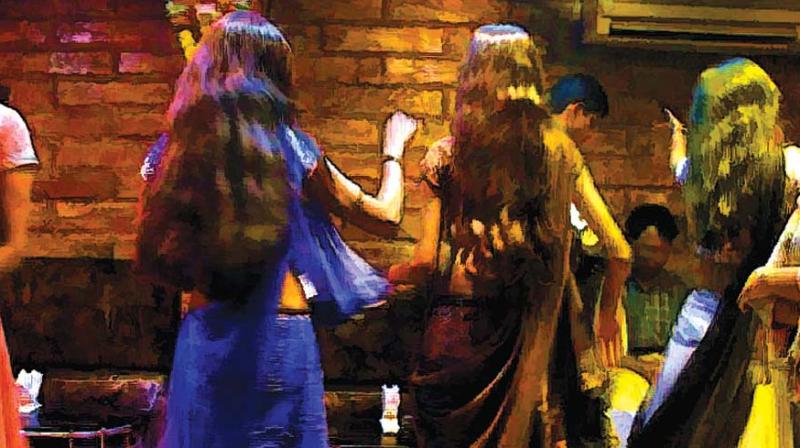An end to the Handmaids tale?

There are two sides to every story. Police in Bengaluru have raided one massage parlour after the other where women have been found, held against their will and forced into prostitution. Groups are now pushing for the ‘Trafficking of Persons (Prevention, Protection and Rehabilitation) Bill, 2018’. Yet this has received stiff opposition with legal experts and social activists saying it will criminalise the marginalised communities, such as transgenders and prostitutes, whom the bill intends to protect. They argue the bill was formulated without consulting civil society organisations or affected groups and would be open to misuse. Bala Chauhan and Shweta Singh report
The Trafficking of Persons (Prevention, Protection and Rehabilitation) Bill, 2018 has received stiff opposition from more than 16 groups of non government organizations (NGOs), workers unions, legal experts and social activists among others in Bengaluru. "The Bill is biased towards social morality. It has been drafted by people, who are far removed from reality. It is against our Constitutional rights," said Nisha Gulur, transgender leader and President of National Network of Sex Workers.
"Trafficking of Persons Bill is an ill-drafted paper without consulting any civil society organisations or affected groups. It criminalizes victims from marginalized communities. Government is escaping from its responsibility by handing over the implementation of such important issues to the police department,"’ said legal expert and activist Prof. Babu Mathew, at a public meeting held in Bengaluru on July 17.
"There are roughly around one lakh female sex workers in Karnataka and majority of them are in the flesh trade out of their free volition. They are not all victims of trafficking. They choose to be in the profession because it helps them provide quality education to their children, food, shelter and healthcare to their families," said Nisha. "We oppose the proposed Trafficking of Persons (Prevention, Protection and Rehabilitation) Bill, which has been drafted without any consultation with the communities it would adversely impact. It not only victimizes people; it also empowers the police to ‘rescue’ the ‘victims’ and send them to rehabilitation homes. Under the new law the magistrate can repatriate people, who have migrated to different places in search of jobs to their native places. As an Indian I have the freedom to work anywhere in the country," Gulur added. Repatriating people from their work places in the name of rehabilitation is a "gross violation of our fundamental rights," said Bharathi, secretary,
Karnataka Sex Workers Union. "Promise of a ‘victim centric’ law will fall flat as all that the trafficked victim will get is ‘detention’ in protection homes - a practice that has been severely criticized by international human rights experts and community groups," she added.
"This bill continues to conflate trafficking and sex work by its silence. We cannot have a law, which harms the citizens of its own country," said lawyer and social activist Aarthi Pai.
Senior Advocate B.T. Venkatesh said that rehabilitation centres and protection homes run by private parties curtail the liberty of the victims. "If this Bill becomes a law it will be draconian, anti-people and will protect only the vested interests," remarked Venkatesh on behalf of ‘Reach Law.’
The activists also felt that the “flawed legislation will override the Bonded Labour Act, which is a much better Act and is serving the purpose,” said Kiran Kamal of Jeevika.
The groups, which participated in the public meeting included - Karnataka Garment Factory Workers Union (KOOGU), Sangama, Reach Law, CIEDS Collective, Karnataka Sex Workers Union (KSWU), Uttara Karnataka Mahila Ookutta (UKMO), National Network of Sex Workers (NNSW), Garment and Textile Workers Union (GATWU), South India Federation of Trade Unions, Jeevika (a group fighting against bonded labour) and Fedina.
The groups passed a resolution to demand the Centre to refer the Bill to a Standing Committee and to conduct comprehensive consultations with all stakeholders including the affected communities.

